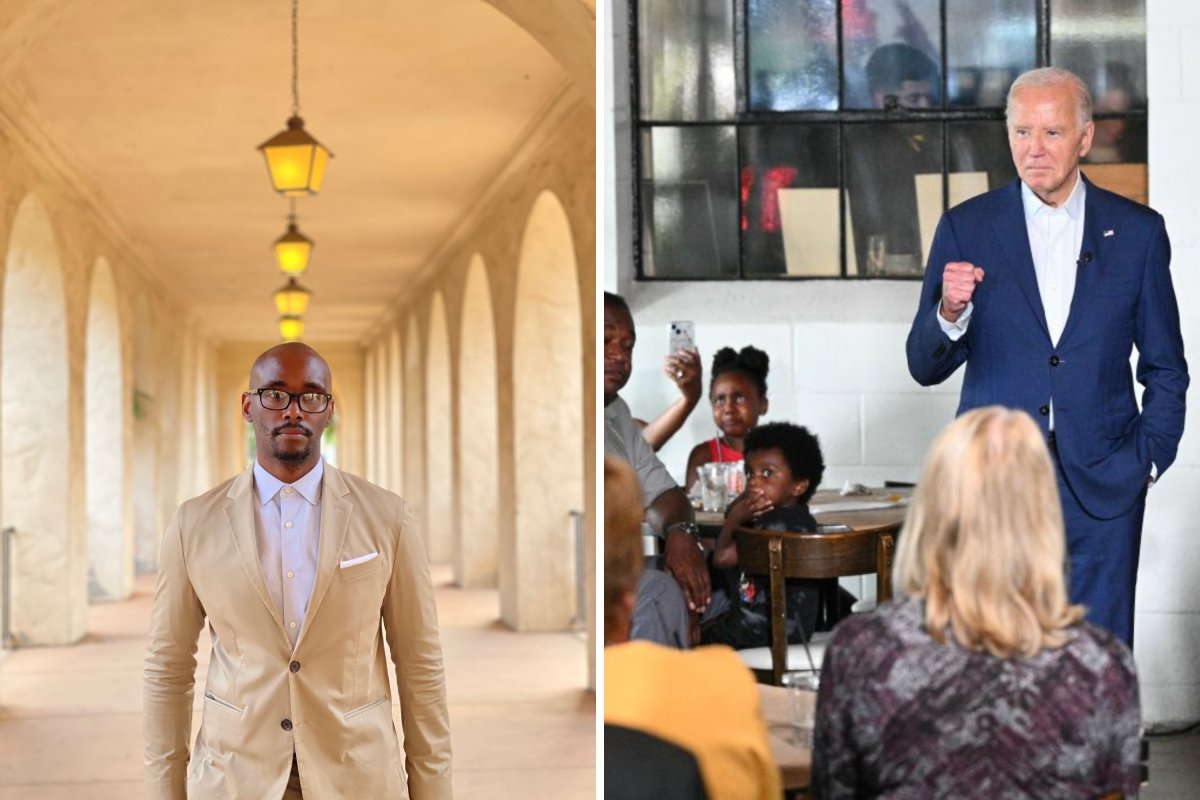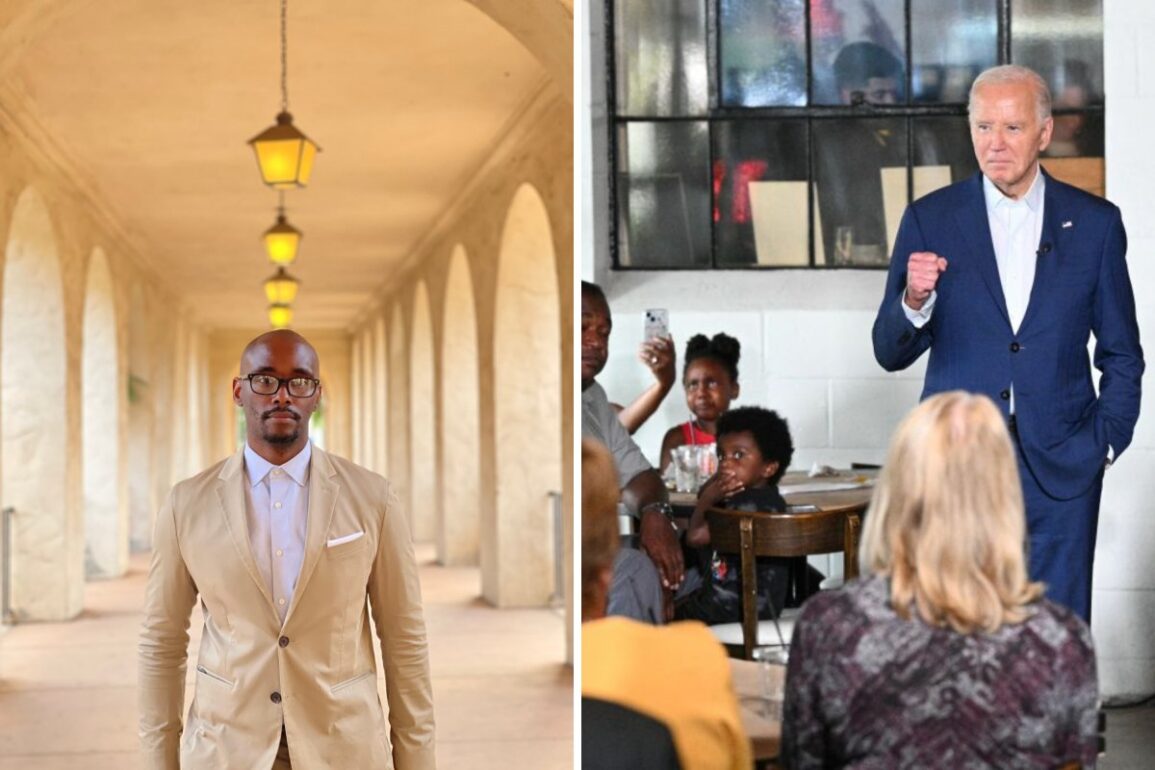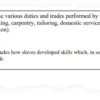How many African Americans have heard this before—”If you don’t vote, your ancestors fought in vain”, or “If you don’t vote Democrat, then you are letting a racist win.” This has been a message that has resonated through our community for years. But it is the type of message that is troubling. One without substance, but heavy on emotion. A talking point that is not meant to inform, but to shame.
Growing up, voting was always treated as a duty. My family was politically minded and often talked about local and national politics. We knew of the representatives who served our districts and understood how the three branches of government worked and affected our day-to-day.
When I turned 18 years old, voting was not suggested, it was expected. I remember the voter outreach being one of information, how these laws and legislation would impact you. Canvas workers and politicians did not use rappers or actors to reach Black folks. There was no, “The ancestors would be shamed of you if you didn’t vote”, but motivating us with data and facts. For some reason, that has all changed.
I saw the shift during the second President George Bush’s candidacy. I watched and read how the outreach towards African American men and women went from providing reasons why we should vote Democrat to “Republicans are going to destroy this country. Black people have to vote for the Democrats.” The message I received was that if you didn’t participate in the election process, then you are worse than the people who voted Republican.
When Barack Obama ran in 2008 and 2012, there was more shame. “Come on y’all, we gotta vote for the Black man to get in there. We ain’t never had one of us in office, so you better vote.” Once again, pulling on our emotions and not offering any substance. In 2016, the shame was coupled with fear when Donald Trump entered the Presidential race. Cries of “Saving Democracy, the end of America, and securing a future for all” were heard. This is all that Black people have gotten—shame and fear-mongering of anyone who is not a Democrat, but no policy or legislation from Democrats.
The methods to drive Black men and women to the polls usually fall into two categories: Well-known Black celebrities either talking with politicians—Taraji P. Henson’s tacky conversation with Vice President Kamala Harris at the 2024 BET Awards invoking Kendrick Lamar’s “Not Like Us”—cringeworthy slogans and advertisements—Remember BLCK App’s horrible “No Voting No Vucking?”—or more commonly used, shame and fear.
The history of African Americans and fighting for voting rights has always been an important part of the Black story in the US. Originally, the Original Constitution and Voting Rights meant that most states restricted voting to white male property owners. This was ratified in 1870, giving the right to vote to all men of all races, but Black men were still shut out as many Southern states used literacy tests, poll taxes, and intimidation to disenfranchise Black voters.

A headshot of LeRon L. Barton (L). US President Joe Biden listens to US Representative Debbie Dingell, Democrat of Michigan, speak during a stop at the Garage Grill & Fuel Bar in Northville, Michigan, ahead of a campaign event in Detroit on July 12, 2024 (R).
LeRon L. Barton/Mandel NGAN/AFP/Getty Images
It wasn’t until the Voting Rights Act of 1965, which was a hard-won battle, that Black men and women were allowed to participate in the voting process. Since then, there has always been this belief of voting due to a “debt owed” to those who have come before us.
The outreach is usually emotional, appealing to our history and our fight to be seen as full citizens of the United States. During a campaign stop for the former Democratic Presidential nominee Hilary Clinton, President Barack Obama stated “It would be a personal insult if you don’t vote for Senator Clinton.” He then went on and said, “Our progress is on the ballot, our tolerance is on the ballot.”
If you understand what Obama said, it was all to appeal to many African Americans’ “soft spot” towards him as the first Black President. Instead of laying out the Democrat’s proposals to Black America, he does a “If you’re down with me, then vote for her.” This is the same rhetoric as President Joe Biden saying to radio host Charlamagne Tha God, “If you have a problem figuring out if you’re with me or Trump, you ain’t Black.” If this kind of talk is directed at your most faithful and important voting base—ninety percent of Black men and women then voted for Biden in 2020.
From what I have seen, voter shaming seems to be only directed at Black people. I do not see any other group of people receiving this tactic. White, Latino, and Asian communities are addressed as if they are intelligent voters who need to be convinced with policy and reasons why they should vote Democrat.
There is no dog and pony show of an entertainer saying the nation is crumbling or a leftwing supporter using past struggles to convince you why you should go to the ballot box. It is an actual discussion of how the Dems proposals will affect them, and their grievances are listened to.
I have seen many videos online and read reports of Black people attending town hall meetings with their congresspeople or representatives asking “What will the Democrats do to address poverty, underfunded schools, immigration, and police brutality?” Those questions are met with silence, diversion, rebuffed, and told “If you vote for Trump, he ain’t gonna do nothing.” There is no respectful dialogue or an attempt to address Black American’s concerns. If you don’t vote, you are seen as uneducated, lazy, and a disgrace to the people who came before you, and that is tiring to many of us.
I recently debated a well-known Democratic African American supporter on social media. While scrolling through X (formerly known as Twitter), I came across a thread in which the person was chastising Black men and women for not voting or being registered to vote. I responded, “How about not getting mad at Black folks for not voting and ask them why? If people do not see a change happening, why would you be surprised when they don’t see the purpose in voting?”
The person responded, “I don’t have to ask, because whatever it is – it is dumb. Our ancestors died for this right because they knew how important it was to have a say in choosing our leaders.” I then replied by saying, “Shaming Black folks into voting is not going to work anymore. The Biden/Harris administration has to come with policies that directly affect Black families.”
After that exchange, I logged off and sighed. I thought: Why is asking to be treated as normal thinking voter who wants to be informed such a tall order?
Today, the shame and fear tactic toward African Americans is in overdrive. Like past years of boogiemen—Bush II, Romney, and Trump for a total of three times in a row. Project 2025 is being labeled as a plan that will “Change the country as we know it” and it is a must you vote against it.
A collection of policy proposals by various conservative thinkers, Project 2025 attempts to reimagine government sectors such as the Departments of Agriculture, and Defense, and offer “conservative” training to aspiring politicians looking to run for office.
Instead of offering policy and what the Democrats plan to do for the United States, Project 2025 is propped up as “The enemy against us all” and it is imperative we cast our ballot. At this point, I can count on my calendar and watch when the Democratic party will begin the fearmongering campaign. It is exhausting. Shame has its limits. Fear has its limits. You are talking to people who have been at the bottom of nearly every socio-economic measure. We have seen the worst of what this country is and can be. Telling Black men and women that our situation can get worse doesn’t move us anymore.
Black people are intelligent voters. We want a life of safety and tranquility like everyone else. We can understand policy and legislation like everyone else. We want our vote to be courted like everyone else. What we do not need is to be shamed into voting. We need to be viewed as a respected voting bloc, like everyone else. If the Black vote is that important, then shouldn’t we get more than just “Vote or die?”
LeRon L. Barton is a writer, author, and speaker.
All views expressed are the author’s own.
Do you have a unique experience or personal story to share? See our Reader Submissions Guide and then email the My Turn team at myturn@newsweek.com.
Uncommon Knowledge
Newsweek is committed to challenging conventional wisdom and finding connections in the search for common ground.
Newsweek is committed to challenging conventional wisdom and finding connections in the search for common ground.



